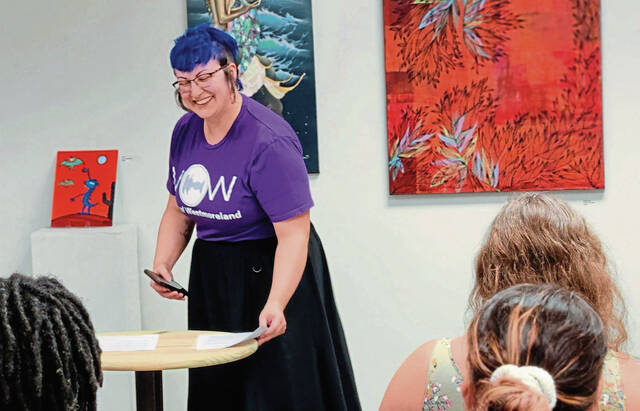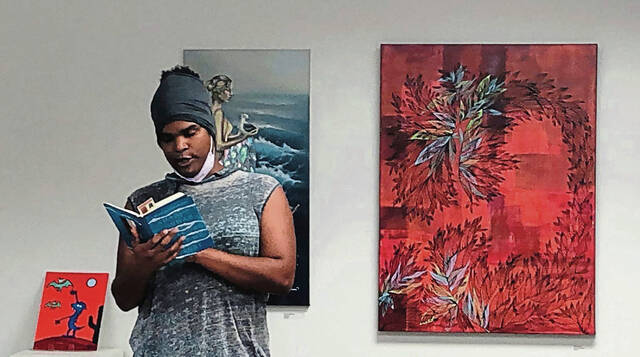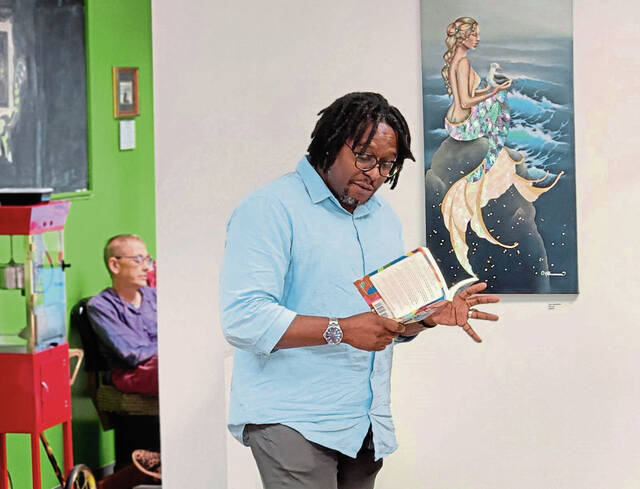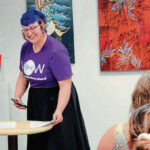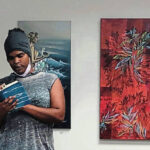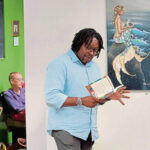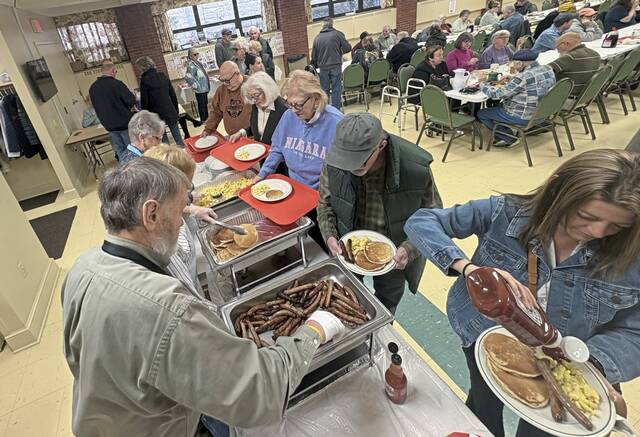When Mackenzie Fangman read “Gender Queer: A Memoir” by Maia Kobabe, it was an awkward experience at times.
“It made me cringe to read, but it was a cringe of self- recognition,” said Fangman, 26, of Greensburg, who also is gender-queer. “And if it made me feel that way as an adult, imagine being able to address that awkwardness when it’s happening at 13 or 14 years old?”
Fangman was among a dozen people who read passages from frequently banned books Friday evening during a “read-in” at the nonprofit You Are Here in Jeannette. It was hosted by FREADom in Hempfield, a community group whose goal is to highlight contested reading material and push back against recent efforts to ban certain books from public- education curricula.
In Hempfield last month, more than 80 people attended a heated school board meeting where district officials adopted a new set of policies governing how books are evaluated for appropriateness and what books can be brought into its library.
They set restrictions on sexual content, written or visual, and nudity in books, depending on the grade level of students. They also formalize procedures for a challenge committee to be formed and rules for it to follow when a book is officially challenged.
“These policies affect my children and their friends,” said Ceil Kessler of Hempfield, who founded FREADom in Hempfield. “I care about kids and about them understanding the world. I think the policies are incredibly short-sighted.”
Sakura Okuri, 50, is also the parent of a Hempfield student. He read a passage from Frederick Joseph’s “The Black Friend: On Being a Better White Person,” about a South Asian girl who is bullied in the cafeteria over her traditional lunch and called a terrorist.
Okuri, a Black man, said even something as simple as his name has never been able to stand on its own — it always required a post-script, an explanation of his heritage or why “it sounds Japanese.”
“For a long time, I was awkward with my name, and this book helped me articulate it a little bit more,” he said.
The read-in was co-hosted by Greensburg nonprofit Voice of Westmoreland. Okuri said he has supported the grassroots group since he moved to Westmoreland County.
“I have a school-age son,” he said. “The only way people are emboldened to take action is to see other people also doing that. I think a nuanced discussion of these books would benefit everyone, and that’s not what is happening. I think it’s a very surface-level reaction.”
For Fangman, Okuri and others, pushing back against restrictions on books addressing topics such as gender identity and race was about offering students a chance to hear marginalized voices.
“When you don’t have the words to describe who you are, you can’t imagine what it’s like to find, or read about, people like you,” Fangman said.


